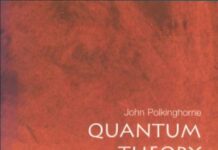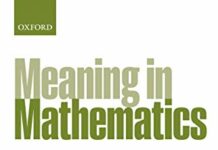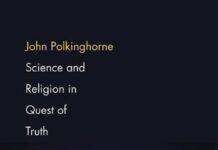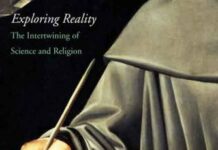
Ebook Info
- Published: 2004
- Number of pages: 203 pages
- Format: PDF
- File Size: 2.17 MB
- Authors: John Polkinghorne
Description
One of our great theologians, also a physicist, here sets a new agenda for religion’s dialogue with scienceMost often, the dialogue between religion and science is initiated by the discoveries of modern science—big bang cosmology, evolution, or quantum theory, for example. In this book, scientist-theologian John Polkinghorne changes the discussion. He approaches the dialogue from a little-explored perspective in which theology shapes the argument and sets the agenda of questions to be considered.The author begins with a review of approaches to science and religion in which the classification focuses on theological content rather than on methodological technique. He then proceeds with chapters discussing the role of Scripture, a theology of nature, the doctrine of God, sacramental theology, and eschatology. Throughout, Polkinghorne takes the perspective of Trinitarian thinking while arguing in a style that reflects the influence of his career as a theoretical physicist. In the final chapter, the author defends the appropriateness of addressing issues of science and religion from the specific standpoint of his Christian belief. His book provides an important model for theologians and scientists alike, showing how their two fields can inform one another in significant ways.
User’s Reviews
Reviews from Amazon users which were colected at the time this book was published on the website:
⭐In this relatively small book, John Polkinghorne suggests that science and theology have a lot in common. Polkinghorne begins by discussing Ian Barbour’s four approaches to the dialogue between science and theology: conflict, independence, dialogue, and integration. He then proposes a different kind of classification is needed: deistic, theistic, revisionary, and developmental. This chapter was a bit of a struggle for this layman, but the reader can begin with Chapter 2 and still benefit from the rest of the book.Chapter 2 on the role of scripture was essentially how to think about scripture in 27 insightful pages. For instance, Polkinghorne points out that “Those who attempt to read Genesis 1 and 2 as if these chapters were divinely dictated scientific texts, kindly provided by God to save us the trouble of attempting to read the book of nature for ourselves, are committing just such an act of literary violence [confusing one genre with another]. They also put themselves in peril of missing the true theological point of the text, with its eightfold reiteration of the message that nothing exists except through the creative will and effectual utterance of God (`And God said “Let there be . . .”‘).” (p 44)Polkinghorne suggests that ” . . . just as individual scientists are the indispensable originators of ideas, yet have to submit their proposals to the judgement of the competent community of their peers, so what is often thought of as a Protestant emphasis on the individual believer’s right to read and interpret scripture has to be qualified by what is often thought of as a Catholic emphasis on the sifting and receiving role played by the whole Christian community.” (p. 52)In Chapter 3, Polkinghorne suggests that Trinitarian theology is a true `Theory of Everything’, ” . . . not that we can infer the Trinity from nature, but that there are aspects of our scientific understanding of the universe that become more deeply intelligible to us if they are viewed in a Trinitarian perspective.” (p. 61) He suggests that “The more we understand scientifically the process of the world, the more it seems closely integrated–a package deal from which it is not possible in a consistent way to retain the `good’ and remove the `bad’. I do not for a moment believe that this insight eliminates all the anguish and perplexity that we feel at the evil and suffering in the world, but it does suggest that its presence is not gratuitous.” (p. 72)In Chapter 4, Polkinghorne mentions numerous analogies between science and theology, e.g., “Perhaps a scaled-down analogy to the ambition of theological discourse about the divine infinity can be provided from within the experience of the fundamental physicist by considering the confident way in which quantum cosmologists talk about the extremely early universe and about the proliferating cosmic sequences of a hypothesized quantum multiverse. Their talk is both fascinating and precarious. The pretty arabesques that the quantum cosmologists perform are executed on the thinnest of intellectual ice and to the sound of cracking. (pp. 91-92)In Chapter 6, Polkinghorne identifies and discusses four eschatological criteria whose fulfillment seemed to be essential for a credible theology: (1) if the universe is a creation, it must make sense everlastingly and so ultimately it must be redeemed from transience and decay, (2) if human beings are creatures loved by their Creator, they must have a destiny beyond their deaths, (3) in so far as present human imagination can articulate eschatological expectation, it has to do so within the tension between continuity and discontinuity, and (4) the only ground for eschatological hope lies in the steadfast love and faithfulness of God, which is testified to by the resurrection of Jesus Christ.He then raises and suggests an answer for the question: “If the possibility of such a world [the world to come] is accepted, however, it does raise an acute theological question. If the new creation is to be such an attractive state, why did God bother with the old creation. (p. 164) “Science and the Trinity” is good introduction to and/or summary of John Polkinghorne’s books. My only disappointment is that I did not discover this 2004 book sooner.
⭐One need not assent to all the details of Polkinghorne’s arguments to gain in understanding of a Christian appreciation of the complexity that is creation. He correctly and sympathetically identifies some of science’s limitations and frankly confronts unresolved theological issues. Despite a vocabulary that will challenge all but a specialist, the book gives a hopeful and cogent account of reality.
⭐John Polkinghorne is a fine author; the combination of his faith, his deep understanding of physics and his ability to explain the most complex ideas in terms that are relatively easy to follow (sometimes requiring a second read!) make him uniquely qualified for the challenge of showing how it can be intellectually sound to embrace the Christian faith. His willingness to quote sources with whom he clearly disagrees and to do so with integrity towards the opposing view adds tremendously to the depth of his reasoning.His comment on page 63 is typical: “The universe has proved to be astonishingly rationally transparent, and the human mind remarkably apt to the comprehension of its structure. We can penetrate the secrets of the subatomic realm of quarks and gluons, and we can make maps of cosmic curved spacetime, both regimes that have no practical impact upon us, and both exhibiting properties that are counterintuitive in relation to our ordinary habits of thought. Our understanding of the workings of the world greatly exceed (sic) anything that could simply be required for human survival.”When I reflect on insights such as this (and the book is full of them) I find them so much more valuable than the confrontational approach of the materialists on one side and the Intelligent Design zealots on the other.
⭐Great book. A little technical and not an easy read, but very thought provoking and educational about both science and faith. Even has some great insights about communion.
Keywords
Free Download Science and the Trinity: The Christian Encounter with Reality in PDF format
Science and the Trinity: The Christian Encounter with Reality PDF Free Download
Download Science and the Trinity: The Christian Encounter with Reality 2004 PDF Free
Science and the Trinity: The Christian Encounter with Reality 2004 PDF Free Download
Download Science and the Trinity: The Christian Encounter with Reality PDF
Free Download Ebook Science and the Trinity: The Christian Encounter with Reality




